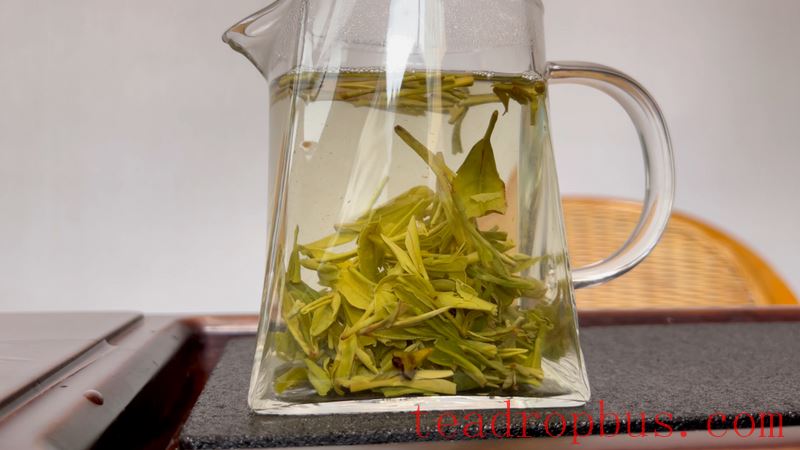Green Tea is very common in our country, and many people enjoy drinking it, as there are benefits to doing so. Green Tea contains components such as polyphenols, catechins, chlorophyll, Caffeine, amino acids, and vitamins. Green tea has actions such as scavenging free radicals, inhibiting bacteria, and invigorating the mind.

The Benefits of Green Tea:
1. Helps Delay Aging: Polyphenols have strong antioxidant properties and physiological activity, making them capable of clearing free radicals in the human body.
2. Helps Inhibit Cardiovascular Diseases: Polyphenols play a significant role in human fat Metabolism.
3. Helps Prevent and Treat Radiation Damage: Polyphenols and their oxidized products can absorb the harmful effects of radioactive substances like strontium-90 and cobalt-60.
4. Helps Inhibit and Resist Viruses and Bacteria: Polyphenols have a strong astringent effect, effectively inhibiting and killing pathogenic bacteria and viruses, with clear anti-inflammatory and diarrhea-relieving effects.
5. Helps with Skin Care: As water-soluble substances, using them to wash your face can remove facial oiliness, tighten pores, and have disinfectant, germicidal, anti-aging, and protective effects against UV radiation from sunlight.
6. Helps Refresh the Mind: The caffeine in tea stimulates the central nervous system, enhancing cerebral cortex excitement, producing an effect that invigorates the mind and clears thoughts.

7. Helps Promote Urination and Relieve Fatigue: Caffeine in tea can stimulate the kidneys, promoting rapid excretion of urine and increasing the filtration rate of the kidneys, reducing the time harmful substances remain in the kidneys. Caffeine can also eliminate excess lactic acid in the urine, helping the body quickly recover from fatigue.
8. Helps Reduce Fat and Aid Digestion: Tea has important effects in aiding digestion and reducing fat, which in today's parlance, means it helps with “weight loss.” This is because the caffeine in tea increases gastric juice secretion, helping with digestion and enhancing the ability to break down fats.
9. Helps Protect Teeth and Improve Vision: Fluoride content in tea is relatively high, with 100 grams of dry tea containing 10 to 15 milligrams of fluoride, 80% of which is water-soluble. If someone drinks 10 grams of tea daily, they can absorb 1 to 1.5 milligrams of water-soluble fluoride. Additionally, since tea is an alkaline beverage, it can inhibit the reduction of calcium in the body, beneficial for preventing tooth decay, protecting teeth, and strengthening them.

When is the Best Time to Drink Green Tea?
The best time to drink green tea is in the morning, as it can stimulate appetite and refresh the mind. It is best to drink it one hour after or before meals. Drinking green tea two hours before sleeping is most effective. Drinking green tea before bed can cause insomnia, so remember not to drink it before meals, and avoid Drinking Tea right after meals or on an empty stomach. Do not drink old green tea, nor should you drink hot or strong tea. While drinking green tea in the morning can stimulate appetite and refresh the mind, it is best to do so half an hour to one hour after breakfast.
It is also good to drink green tea one hour before lunch, as this period is very beneficial to the body. Drinking green tea immediately after a meal can cause tannins in the tea to combine with iron in the food to form insoluble iron salts, reducing iron absorption and potentially leading to anemia over time. Once the iron in the food has been absorbed, usually about one hour after eating, drinking green tea will no longer affect iron absorption. The polyphenols in green tea have antioxidant effects and can promote the excretion of toxins in the body. Drinking two to three cups of green tea daily ensures that the blood contains sufficient polyphenols, beneficial for health.